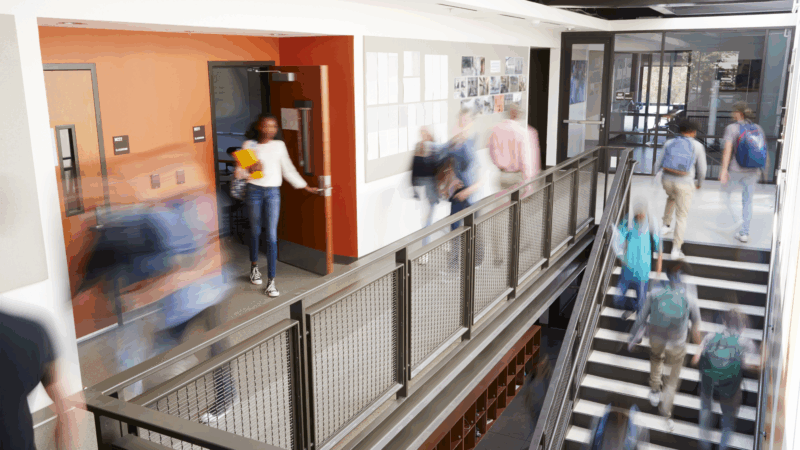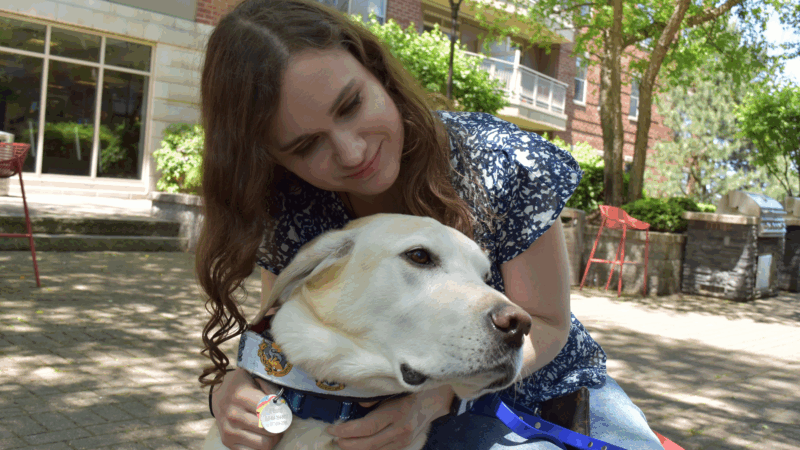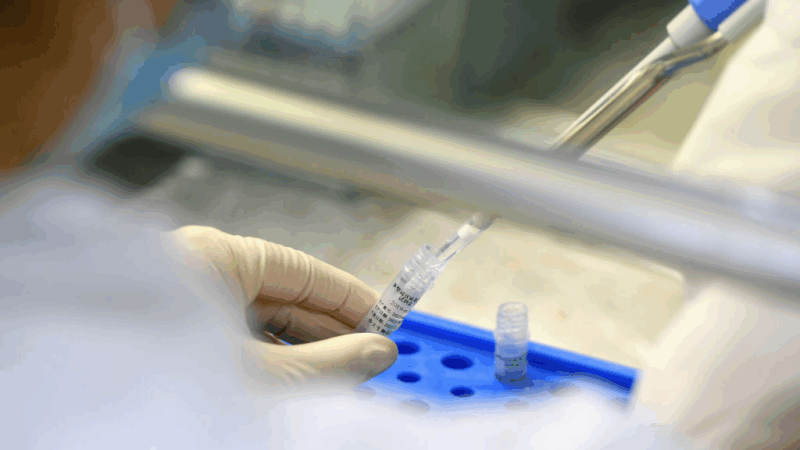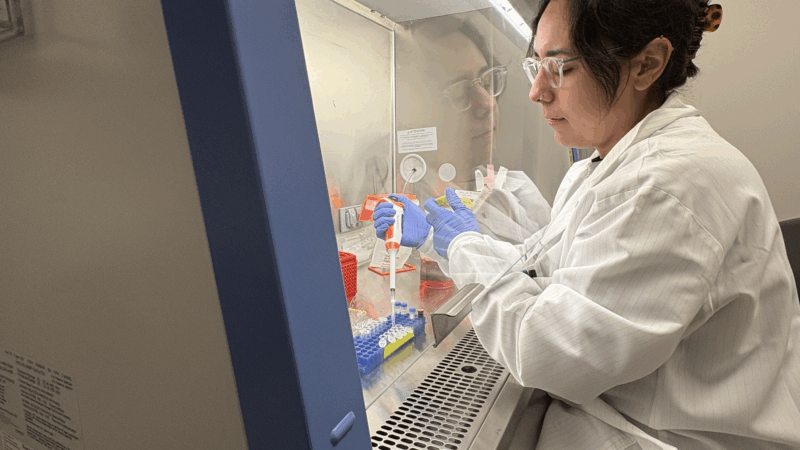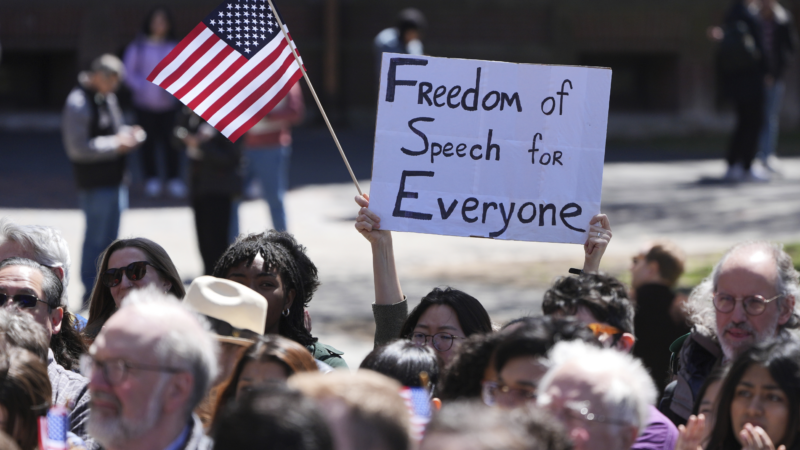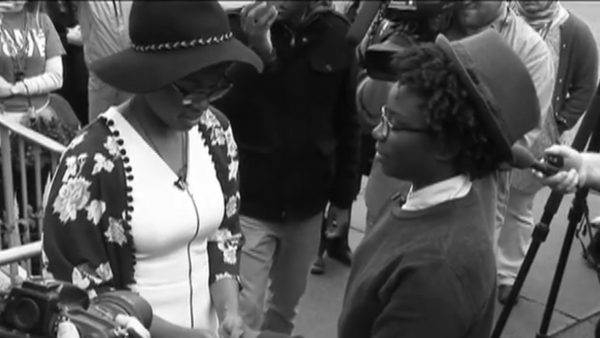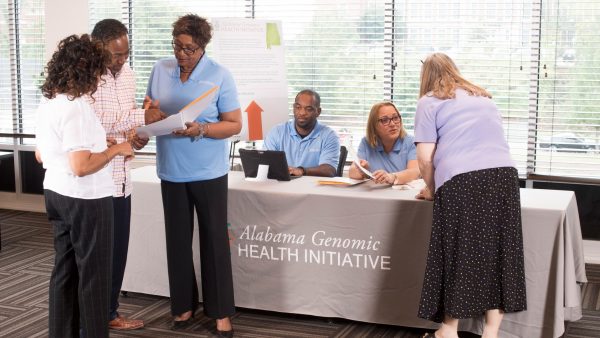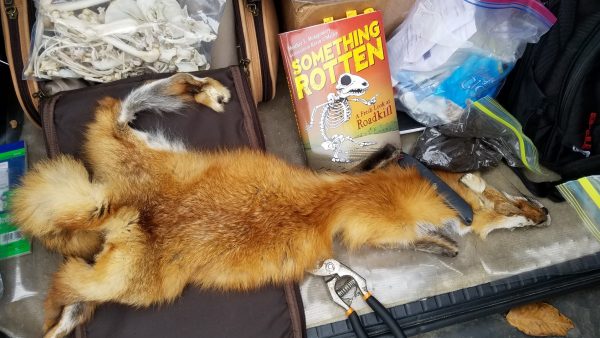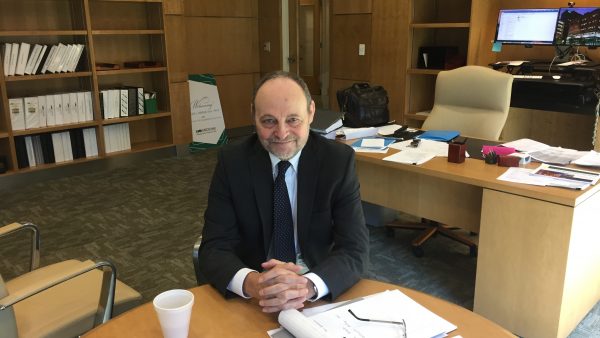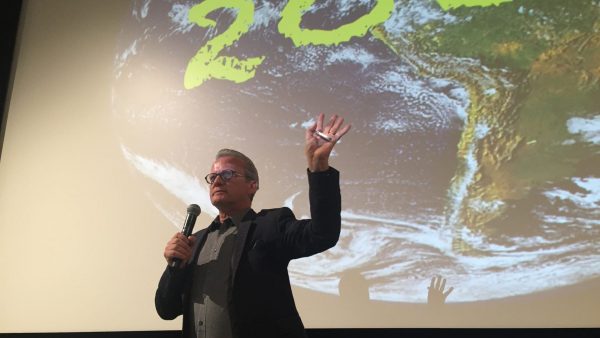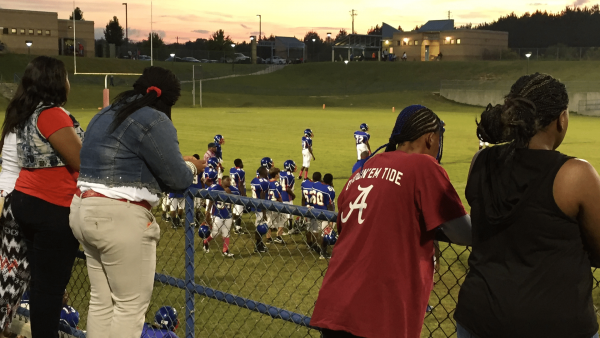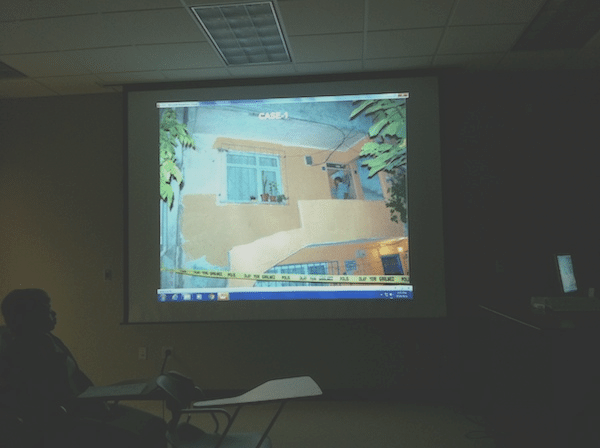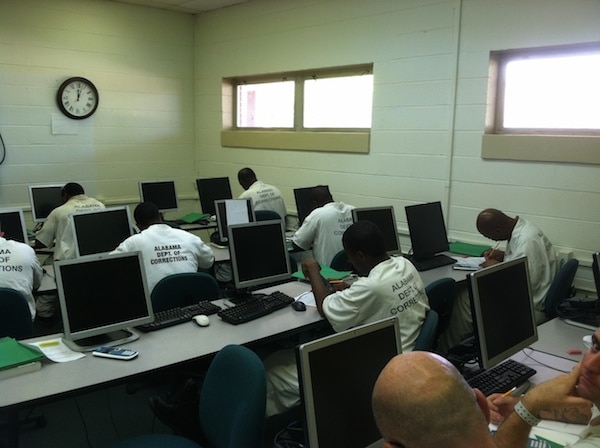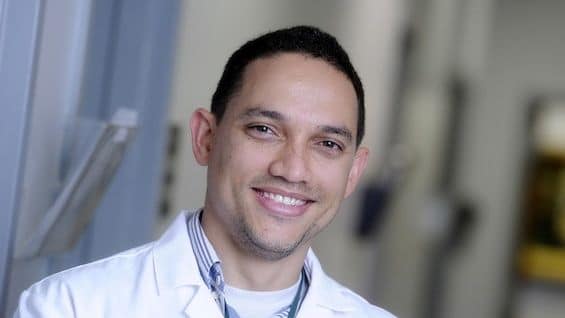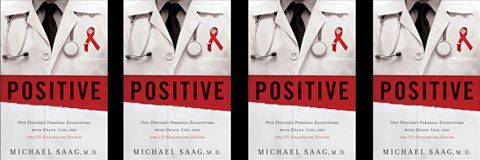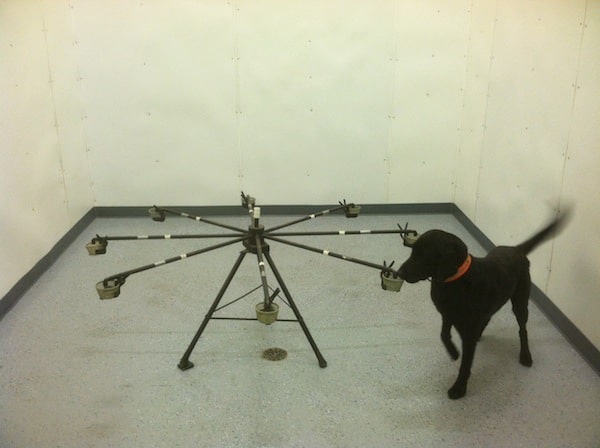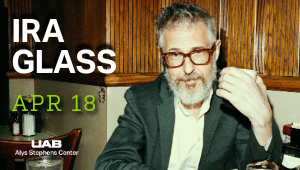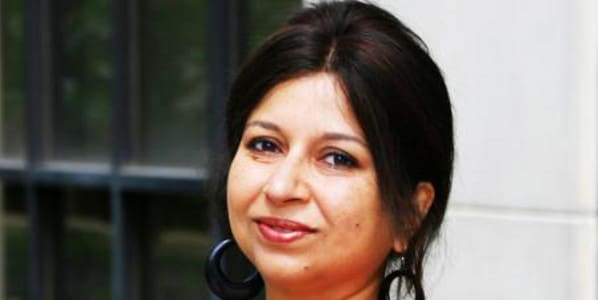Research
The risks of AI in schools outweigh the benefits, report says
A new report warns that AI poses a serious threat to children's cognitive development and emotional well-being.
The government has long researched high school experiences. Then DOGE cut the effort
The federal government has long surveyed high schoolers to help track how their academic choices may have influenced the course of their lives. The Trump administration put an end to that effort.
Judge orders Trump administration to restore $500 million in grant funding to UCLA
A federal judge has ordered the Trump administration to restore $500 million in federal grant funding that it froze at the University of California, Los Angeles.
She hoped key research could help save her eyesight. Then the Trump funding cuts came
Jessica Chaikof says research into gene therapies could someday save her eyesight. But she worries cuts to federal research funding could mean that therapy won't be ready in time.
NIH scientists call on director to protect biomedical research
In a public letter, hundreds of scientists expressed their dissent to the Trump administration's policies affecting the National Institutes of Health and called on its director to support the agency.
Trump restricts funding for ‘gain-of-function’ research — calling it dangerous
President Trump issued an executive order Monday banning federal funding for any research abroad that involves a field of scientific study known as "gain-of-function" research. Here's what it means.
As a diversity grant dies, young scientists fear it will haunt their careers
The Trump administration defunded the National Institute of Health's MOSAIC grant program, which launched the careers of scientists from diverse backgrounds.
Harvard sues Trump administration to stop a freeze of more than $2 billion in grants
Harvard University announced Monday that it has filed suit to halt a federal freeze on more than $2.2 billion in grants after the institution said it would defy the Trump administration's demands to limit activism on campus.
Program Seeks to Preserve Queer History in Alabama
The South has the highest concentration of LGBTQ adults in the U.S. But they’ve largely flown under the radar, so collecting their stories has been a challenge. Enter the Invisible Histories Project, which seeks to showcase LGBTQ life in Alabama.
Alabama is Offering Free Genetic Testing. Here’s Why.
Scientists in Alabama want to capture a statewide genetic footprint. Free testing, they say, can help residents detect their risk for disease and bolster future genomic research.
Alabama Author Wants People to Take a “Fresh Look at Roadkill”
Why did the chicken cross the road? What about the armadillo? One Alabama writer says we have the answers. We just have to take a deeper look -- at roadkill. The author of a new children's book, Something Rotten, A Fresh Look at Roadkill, takes an up-close look at dead animals on the road. There's apparently a lot to learn from these flattened critters on the pavement.
Tripling Trials? UAB Cancer Center Head Pushes Big Goals
The UAB Comprehensive Cancer Center is trying keep the disease from touching so many lives. It recently recruited oncology leader Dr. Michael Birrer to run the center. He tells WBHM’s Dan Carsen that when he was in training, top medical students did not go into oncology because cancer patients had few options, but things have changed.
What Can Finland Teach Alabama About Education?
Several decades ago, Finland’s education system was considered mediocre. But starting around 2001, it came to be regarded as a powerhouse, usually at or near the top of the world’s nations on internationally normed tests. How? And can those strategies work in Alabama?
A Window On Other Arenas: Sports, Race, And More With UAB Sociologist Adrienne Milner
You don’t have to be a scholar to know that African-Americans are heavily represented in contact sports like football and basketball, but underrepresented in “lifetime sports” like tennis or golf. […]
INTERVIEW: State Senator Del Marsh On New Charter School Bill
Charter schools are public schools exempt from many of the curriculum and staffing rules that apply to standard schools. But to stay open, charters are supposed to meet achievement goals spelled out in their charter contract. Alabama is one of eight states that does not allow charter schools, but that could change soon. After failing to pass a charter bill in 2012, Republican lawmakers are trying again in the session that's starting today, March 3, 2015. WBHM's education reporter Dan Carsen caught up with Senate President Pro Tem Del Marsh, the charter bill's sponsor. He says being late to the game is actually an advantage.
Cutting-Edge Forensic Research At ASU Could Help Solve Murders
Believe it or not, in a healthy human body, microbial cells outnumber human cells by about ten to one. Scientists, doctors, and health-conscious people are learning more and more about our "personal ecosystems." But what happens to this individualized community of life after we die? Some Alabama State University forensics researchers are looking at patterns, which could -- among other things -- help investigators solve murder cases. WBHM's education reporter Dan Carsen has more:
A College For Inmates, And An Interview With Its President
The United States locks up people at a higher rate than anywhere else in the world. Some of the most overcrowded prisons are right here in Alabama. Julia Tutwiler Prison for Women is one of them. But some inmates there have access to a unique state-funded program that offers academics and "life skills" they'll need after release. The problem is, this J.F. Ingram State Technical College program, which could ease overcrowding, is struggling for funds. WBHM's Dan Carsen has the story and a full-length interview with J.F. Ingram's president.
INTERVIEW: James Willig On The “Gamification” Of Medical Education
Medical education is always evolving. One way it's changed in recent years is that residents are not allowed to work the long, judgment-impairing shifts they used to. Most agree that's good. But how do you make up for all that lost teaching time? Some UAB researchers think they have an answer: video games. They created a competitive educational game called "Kaizen-Internal Medicine," or just "Kaizen-IM," and a small but promising study showed that busy young doctors learned from it in their off hours. UAB's James Willig sat down with WBHM's education reporter Dan Carsen to explain. Willig starts with a downside of limiting residents' work hours.
Interview: Michael Saag, M.D., Discusses His New Book
UAB researcher and physician Dr. Michael Saag is know around the world as an AIDS expert. He started working with AIDS in the early eighties, a time when the disease was masked in uncertainty. Since then, he's made AIDS research and improving patient treatment his life's work. This month, Dr. Saag published his memoir "Positive: One Doctor's Personal Encounters with Death, Life and the U.S. Healthcare System." Dr. Saag spoke with WBHM's News Director Rachel Osier Lindley about the book, what it's like to lose a patient and his deep concerns about the U.S. healthcare system.
Auburn Developing New “VaporWake” Bomb Dogs
Three years ago, after spending almost nineteen billion dollars on hi-tech research, the Pentagon found the best bomb-detection devices in existence are actually dogs' noses. And researchers at Auburn University are trying to make them even better. They've developed a new type of bomb-sniffing K-9 called a "VaporWake" dog. WBHM's Southern Education Desk reporter Dan Carsen has more on this new tool in the anti-terrorism arsenal.
Money Tight, Scientists Turn To Crowdfunding
In the past decade, it's gotten much harder for scientists to get the federal grants that fund most American research. This year's sequester has made it even more difficult, and the government shutdown is likely to slow things down even further. So scientists are looking for new ways to pay for their work, including "crowdfunding." But going online and asking the public for money has real drawbacks. Even so, as WBHM's Southern Education Desk reporter Dan Carsen tells us, some think it could "open up" science in a good way.
INTERVIEW: Tanner Colby, Some of My Best Friends are Black
As Barack Obama campaigned his way to the presidency, self-described lily-white writer Tanner Colby began pondering exactly why he and so many other white people basically had no black friends. The reasons are complex, ranging from school policy to real estate practices to media image-making to church politics, but the former Vestavia Hills resident dives right in from the springboard of his own life, recognizing his ignorance the whole way. The result: 'Some of My Best Friends are Black: The Strange Story of Integration in America.' Our Southern Education Desk reporter Dan Carsen caught up with Colby soon after the author appeared on MSNBC to discuss America's persistent racial separation.
INTERVIEW: Dr. Michael Crowe
Education affects how the brain ages, and when older people take cognitive tests, the results are compared to those of others with the same amount of schooling. But new UAB research shows that because of racial and economic disparities in education quality, that approach could be leading to disadvantaged people being diagnosed as impaired when they really aren't. Our Southern Education Desk reporter Dan Carsen sat down with Dr. Michael Crowe, who says the disparities in our schools are obvious.


